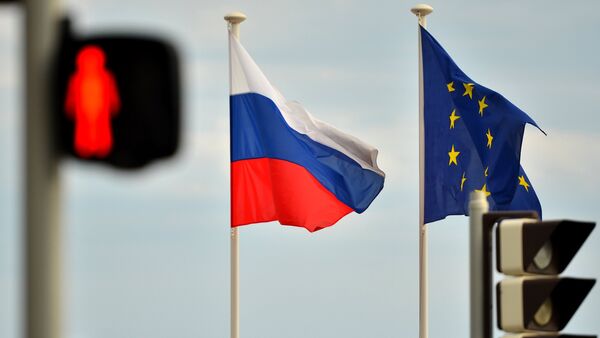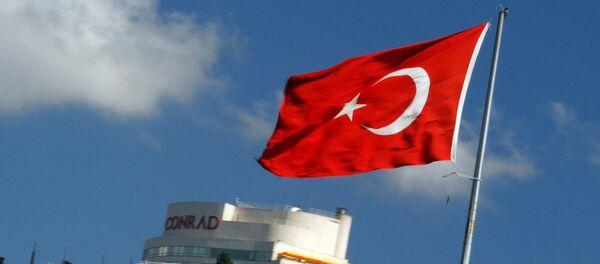"I don't believe that these [economic] difficulties are here to stay. Russia is quite a big economy and a very rich economy and it will easily overcome the difficulties," Zeybekci said.
Sanctions against Moscow were implemented by the West in retaliation to Russia's stance on the Ukrainian crisis. The restrictive measures target Russia's banking, energy and defense sectors, as well as a number of high-ranking officials.
Amid the western sanctions Russia has managed to increase its cooperation with other foreign partners, including Turkey. Earlier on Thursday, Turkish Energy Minister Taner Yildiz told Sputnik Radio that Turkey is planning to double its agricultural exports to Russia by the end of 2015. And at the 13th session of the Russian-Turkish Intergovernmental Commission on Economic Cooperation, that took place in Moscow on Wednesday, the two countries agreed to increase the use of mutual currencies in bilateral trade.
"At the moment Turkey is spending the equivalent of $15 billion on Russian goods. And therefore we would like to substitute it with payments in Russian rubles. In Turkey we believe that we can find an appropriate formula for us to receive Russian goods and pay in rubles and for Russia to pay Turkey for its goods in Turkish lira" Zeybekci said.
The Turkish minister expressed hope that the central banks of Russia and Turkey could easily come up with such a formula.
According to the Russian Economic Development Minister Alexei Ulyukayev, only $1.5 billion, or about five percent of the $32.7 billion trade turnover between Russia and Turkey, is currently operated in national currencies.




